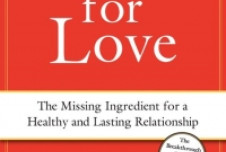Forgiveness may benefit health and relationships, but that doesn’t mean people can—or should—forgive all offenses. Some acts, such as the terrorist attacks of September 11, are so vicious that forgiving them seems improbable— and perhaps even immoral.
Judaism, for instance, teaches that God cannot forgive a sin against another person unless the victim grants forgiveness, making it impossible to receive forgiveness for murder. By that reasoning, the September 11 attacks would certainly seem to be unforgivable.
But some researchers, like psychologist Ervin Staub, have suggested that forgiveness is necessary after acts of murder or even genocide in order to promote healing, reconciliation, and psychological wellbeing. This idea is consistent with new findings by psychologists Loren Toussaint and Jon Webb.
Toussaint and Webb surveyed more than 400 people six to nine months after September 11, asking the respondents how forgiving they felt toward the terrorists, themselves, and toward other people in general. Their results showed that, not surprisingly, people found it significantly more difficult to forgive the terrorists than to forgive themselves or others. Still, Toussaint and Webb found that feelings of forgiveness toward the terrorists were more common than they had expected—42 percent of respondents seemed willing to consider forgiving the terrorists. Those feelings of forgiveness held regardless of whether respondents reported being directly or indirectly affected by the September 11 attacks.
What’s more, people who felt more forgiving toward the terrorists in general reported significantly lower levels of depression and anger and fewer symptoms of post-traumatic stress disorder than people who did not. Toussaint said he was “surprised and amazed” by respondents’ ability to forgive.
“You can think of forgiveness as a healing ointment for the incredible wounds people suffer from events as heinous as September 11,” he said. “I’m not advocating turning around and forgiving on September 12. But six months later, a fair number of people in our survey suggested that that’s what they were at least starting to do.”






Comments